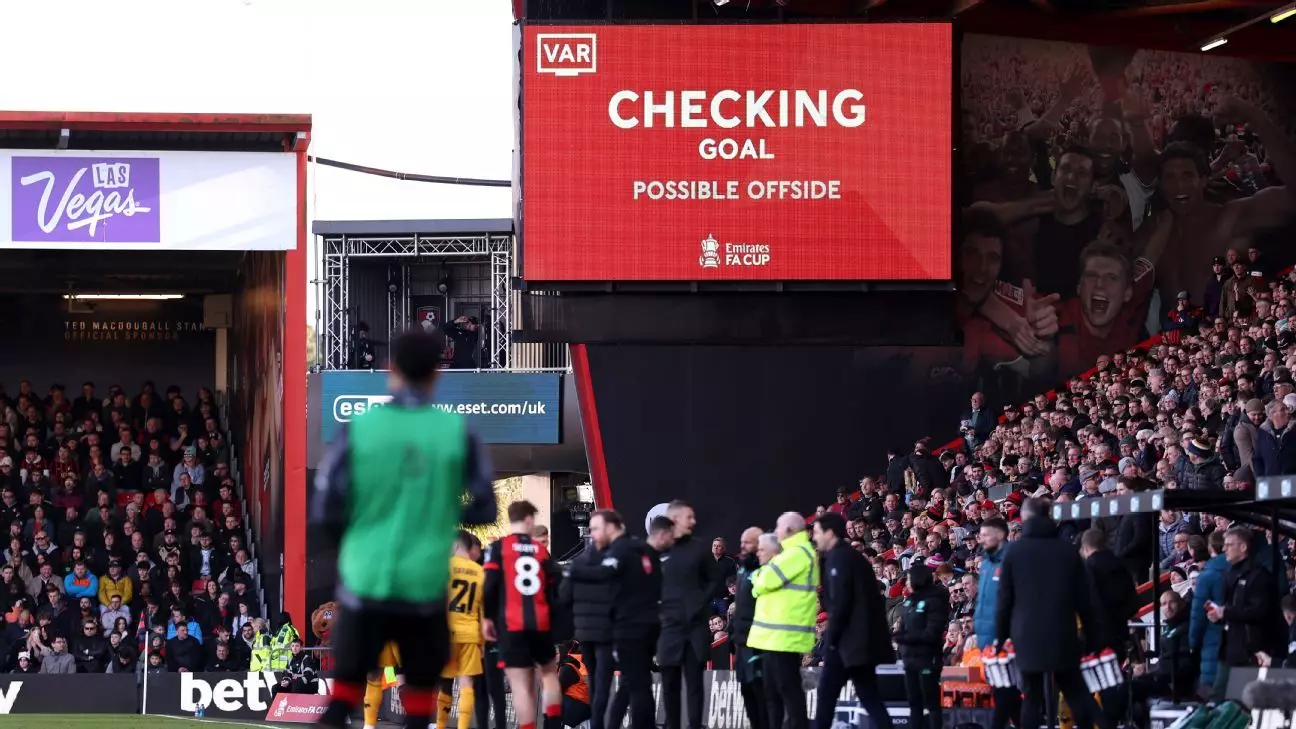The conversation around fairness and accuracy in football is taking a significant turn with the proposed expansion of the Video Assistant Referee (VAR) system. Howard Webb, the chief of Premier League referees, hints at a future where technology could play an even bigger role in officiating. Currently, VAR is primarily utilized to review major decisions—goals, penalties, straight red cards, and mistaken identities—yet Webb suggests there is room to broaden its scope. The idea of including yellow cards and corners in VAR reviews not only reflects a desire for greater precision but also signals a willingness to adapt the laws of the game to meet modern standards of fairness.
The implications of such an expansion are profound. On the one hand, it promises to reduce human error significantly—potentially mitigating contentious decisions that can influence the outcome of a match. On the other hand, it raises questions about the game’s flow and the autonomy of referees. While technology should serve to enhance fairness, it must not overshadow the human element that makes football the dynamic and emotionally charged sport it is. Webb’s openness to expansion indicates a balancing act—seeking fairness without compromising the excitement and spontaneity inherent to the game.
The Dilemma of Accuracy Versus Game Integrity
One of the core issues Webb highlights revolves around the nature of errors—both in wrongly awarded benefits and missed crucial calls. Specifically, he notes the impact of incorrect yellow cards and mistaken corners, which could alter the course of a game. Such errors, when rectified through video review, could preserve the integrity of competitions. However, this also introduces the challenge of over-reliance on video evidence, which might slow down the pace of matches or lead to over-judgment of borderline incidents.
Webb’s acknowledgment of the existing mechanisms to correct mistakes underscores a crucial point: technology should be used to fix clear and impactful errors rather than micromanaging every decision. Expanding VAR must be carefully calibrated so it enhances fairness without diminishing the human intuition and quick decision-making that make football thrilling. If implemented thoughtfully, such measures could elevate the sport’s credibility and restore trust among fans and players alike.
The Societal Reflection and Respect for Officials
Beyond the technological debates, the article also casts light on a deeper societal issue—respect for referees and officials. Webb’s remarks about abusive behavior, including death threats and confrontations, serve as a stark reminder of how modern society’s frustrations often spill over onto those enforcing the rules. Football matches, which should be celebrations of skill and teamwork, sometimes become battlegrounds of hostility toward officials. Webb describes this phenomenon as “a reflection of society today,” pointing to a broader cultural problem of intolerance and online toxicity.
This harsh reality underscores the urgent need for cultural change within football. Respect for officials must be cultivated, both at the grassroots level and among the highest echelons of the sport. As for the officials themselves, Webb’s candor about David Coote’s unlikely return to top-tier refereeing reflects a tough but necessary stance—accountability is essential in maintaining integrity and respect for the game. The challenge remains: how do governing bodies foster a culture of respect while embracing technological advancements that could perfect officiating?
Webb’s frank discussion of these issues reveals an ambitious vision for football—one that leverages innovation to enhance fairness but also recognizes the importance of societal values. Achieving that balance is crucial if football is to evolve as a sport rooted in fairness, respect, and the pure love of the game.

